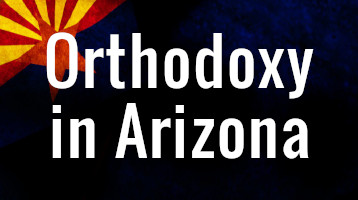
by John Nichiporuk
We were recently asked the following question:
“Why is it so wrong to say that the Spirit also proceeds from the Son, if He indeed is co-eternal with the Father?
Understanding the complexity of this issue, causing argument for more than a thousand years, we will try to give a short answer to it, with no pretension to providing a complete coverage of this theological problem.
Testimony of the Holy Scripture
First of all, indeed, both Catholics and the Orthodox confess the co-eternity of the Holy Spirit and the Son with the Father, as well as Their consubstantiality and Their complete ontological equality. However, returning to the question posed, the co-eternity of the Holy Spirit to the Father does not mean, from the point of view of Orthodox theology, that the Holy Spirit emanates from the Son, for these are different planes of thought and different aspects of Trinitarian theology. Jesus Christ, telling His disciples that they must receive the Comforter,
“whom I will send to you from the Father, that is the Spirit of truth who proceeds from the Father…” (John 15:26)
directly and expressly says that although He is sending the Comforter, He sends Him from the Father, from Whom the Holy Spirit proceeds. Certainly, we find other passages in Scripture that can be interpreted in defence of the Filioque:
“And when He had said this, He breathed on them and said to them, ‘Receive the Holy Spirit…’” (John 20:22),
“Because you are sons, God has sent forth the Spirit of His Son into our hearts…” (Gal. 4: 6),
“The Spirit of Christ ”(1 Pet. 1:11), etc.
However, the only words about the proceeding of the Holy Spirit are the words of Christ Himself, Who speaks of the Spirit as proceeding from the Father. These words were perceived by the fathers of the First Ecumenical Council of Constantinople in 381 as the most authoritative.
Hypostatic Properties
Speaking about the birth of the Son from the Father and the proceeding of the Holy Spirit from the Father, we are faced with a theological complexity, such as the hypostatic properties of the Persons of the Holy Trinity. This concept was developed by such great and universally authoritative Fathers as the Great Cappadocians (St. Basil the Great, Gregory the Theologian and Gregory of Nyssa). And this is precisely where one of the main reasons lies for the denial of the Filioque dogma by Orthodox theology. The Holy Fathers affirm that the Persons of the Holy Trinity are absolutely identical in essence, possess the same Divine nature, but differ from one another in hypostatic properties.
In this perspective, the hypostatic property of the Father is to give birth to the Son and be the source of the Spirit; the hypostatic property of the Son is to be born from the Father; the property of the Spirit is to emanate from the Father. According to the Eastern Holy Fathers, the endowment of the Son with the “role” of the source of the Holy Spirit is impossible, because “emitting” the Holy Spirit is the hypostatic property of the Father alone, while the hypostatic properties cannot be confused without the risk of thereby falling into the heresy of Modalistic Monarchianism.
The Monarchy of the Father and some Linguistic Nuances
Finally, the main argument of the Orthodox side is the Hypostasis of the Father being the Source and the First Cause of the existence of both the Son and the Spirit. Orthodox theology admits that the Holy Spirit emanates from the Father through the Son. If Catholic theologians interpret the Filioque following this Orthodox paradigm and emphasizing that only the Father is the One Source of the existence of all Persons of the Holy Trinity, in this case the Filioque will be recognized as Orthodox. A bright example of this approach is the Venerable Maximus the Confessor, equally authoritative for both the East and the West, who proposed such an interpretation of the Filioque.
Another possible “bridge” between Catholics and the Orthodox is the linguistic understanding of the Latin term “proceeding”, by which the Greek ????????????? is translated. The Greek term in the original version of the Creed is much narrower in meaning than the Latin term procedit, and exclusively means the eternal origin of the Holy Spirit from the Father as from the Only First Cause of the Holy Trinity. The Latin term includes several shades of meaning. One of them is clearly unacceptable in the context of the Symbol of Faith and the Existence of the Holy Trinity. However, in terms of the history of Salvation, understanding the Holy Spirit as grace and the Spirit of Christ, we can say that the Holy Spirit proceeds from the Son, or is given by the Son. Such saints as Venerable Anastasios of Sinai and Tarasios of Constantinople mentioned this in their works.
Summarizing our answer, we can say that the Holy Spirit proceeds from the Son only in the context of our salvation history. In the context of inter-relations of the Trinity, we confess that the Holy Spirit receives His Being only from the Person of the Father and, therefore, emanates (?????????????) also solely from the Father, through the Son. The use of the Creed with any insertion (including the Filioque) is prohibited by the authority of several Ecumenical Councils, universally binding for both Catholics and the Orthodox. The Nicene-Constantinople Symbol of Faith (without the Filioque) is a common property of the Universal Church and a visible sign of the doctrinal unity between the Western and the Eastern Church throughout the first millennium, which should also remain unchanged in the future.


